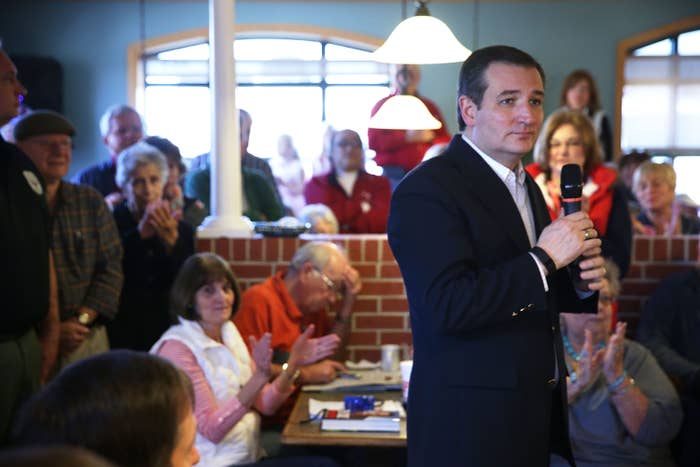
Leading presidential candidates took different stances on whether Apple should assist the FBI in unlocking one of the San Bernardino shooter's iPhone at a CNN town hall on Wednesday — with Ted Cruz answering most decisively that Apple should unlock the phone.
A judge ordered Apple on Tuesday to turn over software that would allow the FBI to get around the security features of the cell phone belonging to Syed Farook. The FBI has been unable to access the phone's encrypted data. Apple has said they will not comply with the order, citing concerns over privacy and the threat of hacking.
Cruz said that no one has the right to defy legal search warrant.
"Any time you're dealing with issues of security and civil liberties, you got to balance them both," Crus said. "And I think we can walk and chew gum at the same time. We can protect ourselves from terrorism and also protect our civil rights."
Cruz added, "We ought to be using every tool we can to ascertain who else they might be in contact with, if there's a broader cell, so of course we should unlock their phones and find out who they're talking to, what texts they're sending, and that's a basic matter of keeping this country safe."
Avoiding a direct "yes or no" answer on what Apple should do, Rubio said the issue is complicated and that he doesn't have a "magic solution."
"I think we're going to have to figure out a way forward by working with Silicon Valley and the tech industry on this," Rubio said. "There has to be a way to deal with this issue that continues to protect the privacy of Americans but creates some process by which law enforcement and intelligence agencies could access encrypted information. I don't have a magic solution for today, it's complicated, it's a new issue that's emerged in the last couple of years."
Rubio acknowledged that creating a backdoor would create a vulnerability to hacking, and said that after the appeals process, Apple would ultimately have to comply with what the court decides.
"It's not as simple as people think it is," he said. "Now Apple is under court order. I'm sure they're going to appeal it. They need to follow whatever the court orders eventually."
Carson also did not offer a yes or no answer to the question, but said Apple would need to get over their distrust of government in the face of terror threats.
"I think that Apple, and probably a lot of other people, don't necessarily trust the government these days," Carson said. "And there's probably very good reason for people not trust the government. But we're going to have to get over that because right now we're faced with tremendous threats, and individuals, radical jihadists, that want to destroy us. And we're going to have to weigh these things, one against the other."
Carson said he believed a public-private partnership was needed to address cyber security threats.
"I believe that what we need is a public-private partnership when it comes to all of these technical things and cyber security because we're all at risk in a very significant way," Carson said. "So it's going to be a matter of people learning to trust each other, which means Apple needs to sit down with trustworthy members of the government, and that may have to wait until the next election, I don't know, but we'll see."
Earlier on Wednesday, Donald Trump said Apple should comply with the court order and open up the attacker's iPhone.
